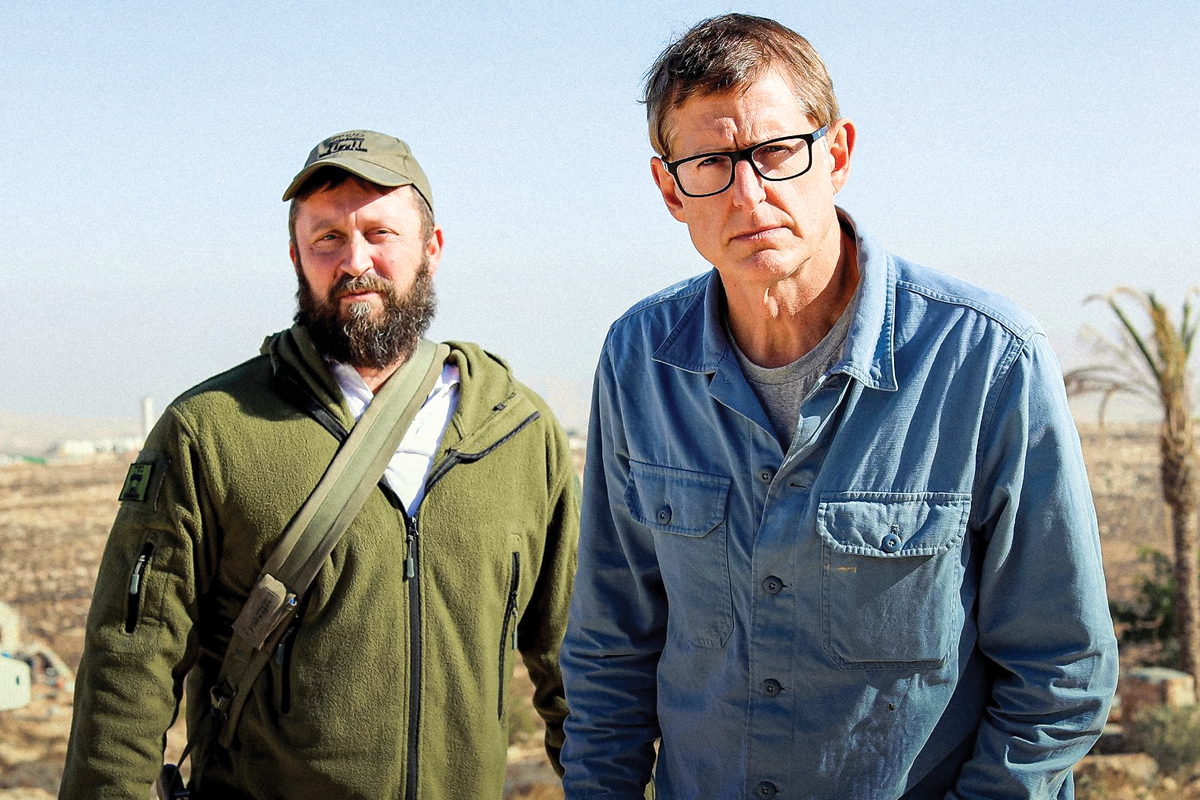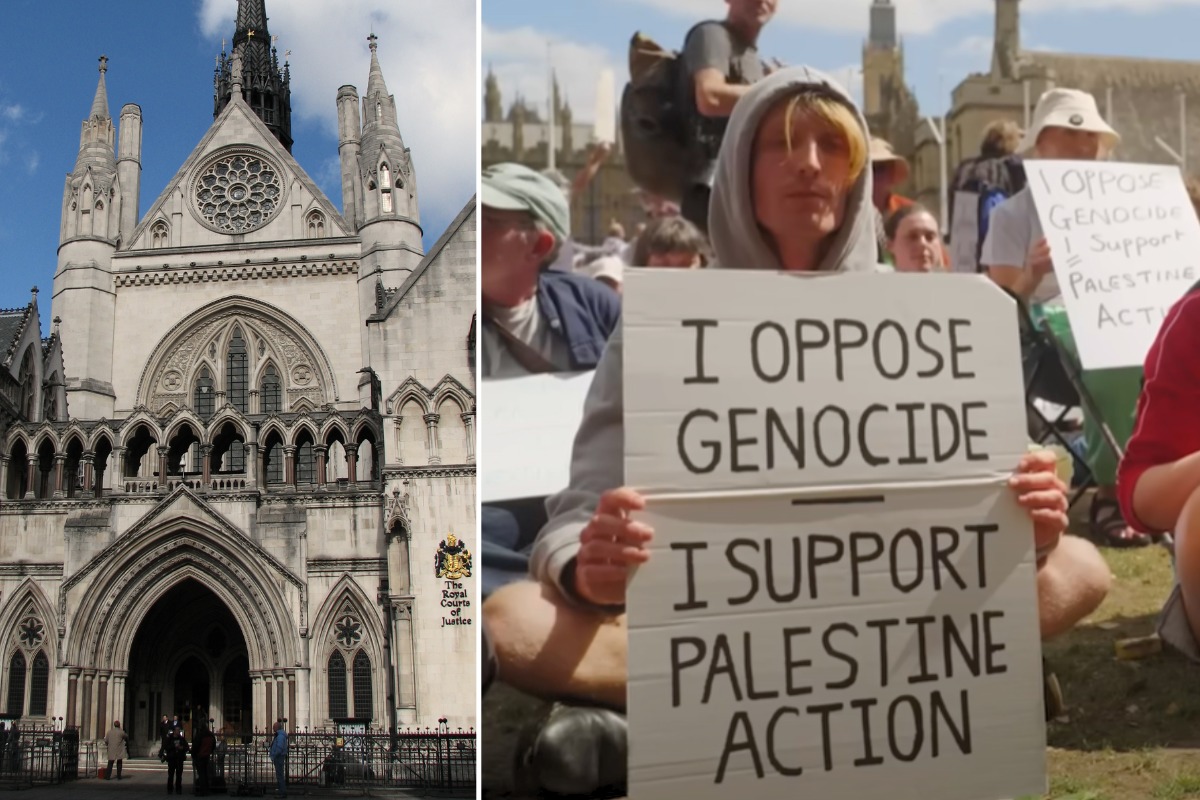“This land belongs only to the people of Israel. All of Gaza, all of Lebanon should be cleansed of these camel riders.”
This chilling speech, delivered by an ultranationalist rabbi at a meeting overlooking the war-torn Gaza Strip, is just one example of the genocidal fervour expressed freely and with impunity by Zionist settlers in Louis Theroux’s latest documentary.
A sequel of sorts to his 2010 documentary on illegal Israeli settlements in the West Bank, the film sees Theroux employ his trademark faux-naive questioning style to let his subjects reveal their true feelings.
Louis Theroux tagged a long with settlers convey to their final destination – a viewpoint over looking the genocide.
A Rabbi calls them savages and gives his blessings for ethnic cleansing pic.twitter.com/WyFgDfwdvN
— Mukhtar (@I_amMukhtar) April 27, 2025
Though it must be said, the Neo-Nazis and homophobic religious zealots Theroux has interviewed in previous documentaries at least took some urging to confess their vile views. Not so here.
Texan-born settler Ari Abramowitz scowls when Theroux even says the word ‘Palestinian’. “I’m so uncomfortable using that word,” Abramowitz explains. “I don’t think they exist as a real nation, with a real claim to this land.”
From fringe to mainstream
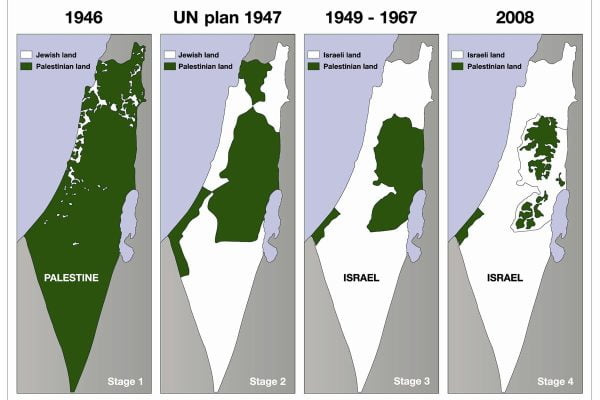 Theroux finds that the extreme Zionist ‘fringe’ he investigated 15 years ago has entered the mainstream, accelerated by the Israeli government’s sadistic response to Hamas’ attack on 7 October 2023.
Theroux finds that the extreme Zionist ‘fringe’ he investigated 15 years ago has entered the mainstream, accelerated by the Israeli government’s sadistic response to Hamas’ attack on 7 October 2023.
While Gaza has been levelled to the ground, Israel’s bloody vengeance has also extended to Palestinians living on the West Bank.
Since his last visit, the population of Jewish settlers living in what they call ‘Judea and Samaria’ on Palestinian territory (according to both Israeli and international law) has increased by over 40 per cent to around 500,000.
These communities are armed and politically supported by hardline settlers in high political places like Itamar Ben-Gvir, who appears in the film at one point addressing a rally overlooking the Gaza border.
At this rally, Zionist families are shown bringing their children to observe the devastation of the Gaza Strip through binoculars, while dancing to music and snacking on candyfloss.
“A little felony”
The film’s main subject, Daniella Weiss, is described as the “Grandmother of the Settler Movement”.
With a broad grin, she mocks the idea that the settlers are breaking international law and dismisses war crimes committed by her supporters as “a little felony.” The reason is clear: she understands that she has the full support of the regime. The settlers are therefore above the law.
Early in the documentary, she brags to Theroux about her growing influence over the “young generation growing up in Israel”, as well as Benjamin Netanyahu’s government – especially since 7 October.
“Can you call Netanyahu?” Theroux asks, to which Wiess smirks and replies: “I call his aides… Netanyahu is very happy with what we do here… we help the government to do what they cannot do for themselves.”
It is clear what she is talking about. It is in Netanyahu’s direct political interest to keep the fighting going. And with Gaza bombed to rubble, inflaming tensions on the West Bank is the next logical step.
The ultranationalists in his cabinet also make no secret of their desire to complete the forcible expulsion of all Arabs from what remains of Palestinian territory, and create living space for Jewish settlers, who are more than happy to do the dirty work.
There have been around 1,800 settler attacks on the West Bank since 7 October, averaging four a day, which have killed over 800 Palestinians. The settler thugs enjoy protection from IDF troops, who periodically conduct deadly raids and serve as accomplices in terrorising the Palestinian population.
This is depicted starkly in the film when Theroux accompanies Palestinians trying to access their ancestral olive trees for the annual harvest, only to be interrupted by armed soldiers. They insist on a spurious ‘permit’ and warn the olive pickers and accompanying Israeli peace activists that they must leave.
“What if he says ‘I’m not leaving’?” Theroux asks a soldier, who merely grins and replies:
“I’m grateful we didn’t get to that part.”
Harassment and humiliation
Theroux takes the viewer on a whistlestop tour of the apartheid that Palestinians face daily in the occupied territories. They are forced to drive on different roads, cannot enter certain areas, and must navigate a Byzantine network of military checkpoints to get around.
As the documentary points out, these are clearly tactics of harassment and humiliation intended to make life unbearable. At one point in Hebron, Theroux’s guide, Palestinian peace activist Issa Amro, is turned away by an Israeli soldier from an area outside the visitors’ centre.
“Why can’t he be here with us?” Theroux asks.
“Because there are limits for Palestinians,” the soldier replies bluntly.
By contrast, a foreign-born Israeli Jew drives up to the same area. “American?” Theroux asks him, identifying his Brooklyn accent. “What do I look, Chinese?” he replies.
Theroux notes the irony of a Palestinian not being allowed to approach the visitors’ centre in the city where he was born, whereas an American migrant faces no such restrictions.
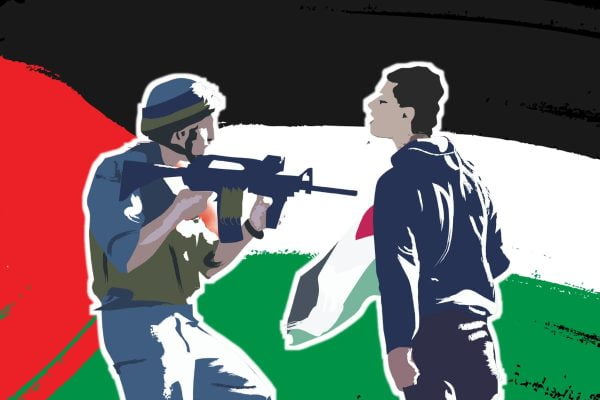
Theroux also gets a small taste of the mortal danger Palestinians perpetually contend with. At one point, he is speaking to a Palestinian in his home as an Israeli patrol rolls by, aiming the laser sights of their rifles into the building. “This happens almost every day,” he says, wearily.
“Can we call the police?” Theroux asks meekly. Another Palestinian interviewee only chuckles and replies, “which police? They are one regime.”
This point reoccurs later, after a masked IDF soldier becomes angry at being filmed and almost arrests Theroux at gunpoint, before apparently thinking better of detaining a famous British journalist on camera.
The soldier then raves about how he is “from the Israeli military, ok? Israel Defence Forces… I’m above the police here in the West Bank. I’m the highest responsibility of the law.”
One of the main themes of the documentary is the settlers’ goal of taking over Gaza, a desire Daniella Weiss emphatically supports, whatever the cost.
At the end of the film, Theroux’s patience is finally exhausted after she tries to goad him into assaulting her by shoving him in the chest, under the pretext of illustrating the ‘cycle of violence.’
He then calls her lack of regard for the deaths of thousands of Arab civilians and children “sociopathic.”
Daniella merely shrugs, chuckles and replies: “Not at all, this is normal.”
Distorted picture?
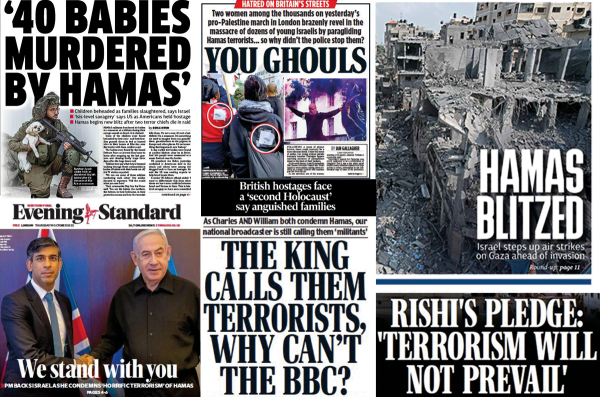 Even before the film was released, there were attempts by the pro-Zionist press to launch a pre-emptive strike against it. ‘Why does Louis Theroux keep picking on Israeli settlers?’ asked the Spectator in February. Truly, one’s heart bleeds!
Even before the film was released, there were attempts by the pro-Zionist press to launch a pre-emptive strike against it. ‘Why does Louis Theroux keep picking on Israeli settlers?’ asked the Spectator in February. Truly, one’s heart bleeds!
Scathing reviews in the right-wing Daily Telegraph, Daily Mail and Jewish Chronicle accuse Theroux of selectively interviewing the ‘worst-possible Jews’ and the ‘nicest-possible’ Palestinians, thus giving a distorted picture of the situation on the West Bank.
This has been accompanied by the typical raft of social media bile accusing Theroux of ‘antisemitism’.
But the genocidal attitudes Theroux exposes in the film are perfectly in line with opinions professed by Netanyahu and his cabinet, as well as the murderous campaign of destruction, starvation and deprivation to which Gaza has been subjected for a year and a half.
Equally repulsive as attempts to rubbish the film have been the belated horror expressed by right-wing politicians like Alastair Campbell, and glowing praise in liberal papers like the Guardian and the Independent.
These outlets have been at best equivocal about and at worst active participants in months of propaganda about Israel’s ‘right to defend itself.’
One gets the impression that, for these ladies and gentlemen, with the horrors of Israel’s genocidal war piling up, this prestige documentary by a member of Britain’s media establishment means it is now ‘safe’ to shed a few crocodile tears.
The BBC has also played a risible role since 7 October. And despite permitting this documentary to be aired, the state broadcaster has already caved to Zionist pressure in removing a previous film about the horrors experienced by children in Gaza. Who knows whether they will bend the knee once again?
Ugly reality
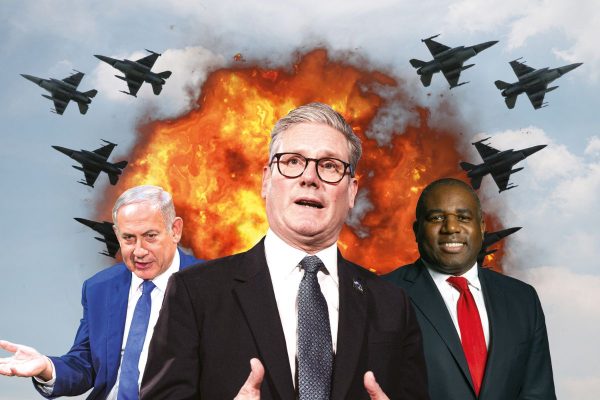 In reality, and by his own admission, Louis Theroux reveals nothing new for anyone who has been following the situation in the West Bank.
In reality, and by his own admission, Louis Theroux reveals nothing new for anyone who has been following the situation in the West Bank.
But with Theroux’s profile as one of Britain’s most famous documentarians, certainly a wider audience will have been exposed to the ugly reality of the regime Keir Starmer and David Lammy are arming, aiding and abetting.
Theroux’s status as a member of the British media establishment also makes it somewhat more difficult for Israel and its allies to simply shut him up (though they will certainly try). Not everyone is so fortunate.
Hamdan Ballal, one of the directors of the brilliant Oscar-winning documentary film No Other Land was arrested at his home in Nablus by IDF soldiers, detained for hours and beaten in blatant revenge for daring to expose the reality of daily life in the West Bank.
The IDF have also raided Issa Amro’s home as punishment for appearing in Theroux’s film. This was followed by an invasion by rabid settlers, who ransacked Amro’s property and injured a peace activist. The police warned that he would be arrested if he tried to prevent or report the attack.
This is not to mention the hundreds of Palestinian journalists murdered by the IDF for the crime of trying to show the truth. These are the actions of a regime that, we are constantly told, is the ‘only democracy in the Middle East.’
No doubt Starmer and Lammy will have been relieved at the recent witch-hunt against Kneecap acting as a distraction from Theroux’s having the temerity to give the Zionist settlers a microphone and letting them say what they really think.
‘The Settlers’ is available to stream on BBC iPlayer until April 2026.

